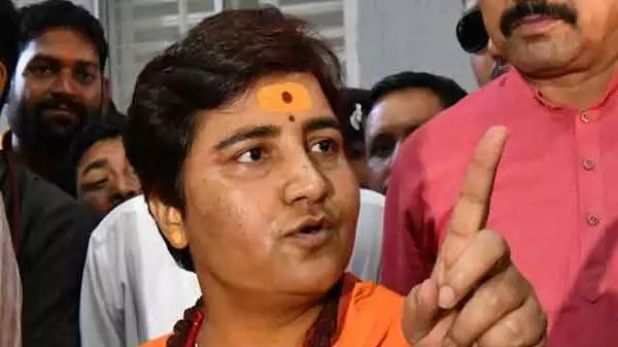
Celibacy is not equivalent to high moral politics. To be married or unmarried is an individual choice. But to equate it with political morality and to celebrate celibacy as a high moral principle, creates a false binary of high and low moral politics. Ever since Narendra Modi was elected as the Chief Minister of Gujarat he has been portrayed as a sanyasi. By the time he became the prime minister, his status has been equated to that of a saint.
Examples of sadhus and sadhvis joining politics are many. The idea that a sanyasi gives up worldly pleasures for rendering services to humanity has been a dominant rhetoric in this sub-continent. Since the days of anti-colonial struggle, this idea has more or less been associated with sacrifice, selflessness, nationalism, patriotism, and resistance. In this context, one cannot restrain oneself from discussing the portrayals of the resistance offered by the sadhus and sanyasis in one of the classical text written by Bankim Chandra Chatterjee. During the anti-colonial struggle his work Anandmath attained the stature of an epic. Most of the young revolutionaries of that period read the text with great interest. They derived inspiration, and tried to incorporate the methods and teachings offered in the text. The idea that one should be selfless in the service of the ‘motherland’ was dominant. Most young revolutionaries chose to fearlessly wield arms against the colonial state. They gave up their luxuries, their career, and were selflessly seen sacrificing their lives during the national movement.
This however does not mean that they had a high moral ground for doing active politics, and those who were married- had siblings and family did not have that legitimacy. People married or unmarried, people with family or without family was not a criteria for doing national politics. The history of the anti-colonial struggle shows that the political leadership, their duties, responsibilities, and commitments cannot be evaluated and valued on these false binaries.
It is indeed amnesia on our part that we tend to judge politicians on the idea as to whether or not they practice celibacy and whether or not they have left their kith and kin for contributing in the larger good of the nation. Democracy does not subscribe to these moral binaries of high and low. In a democratic set up, politicians are not heavenly figures, they are elected representatives. Furthermore, in a democracy the government does not derive inspiration from the spiritual paths or the religious texts. Instead, the guiding principle is the written constitution and therefore the legitimacy of governing the citizen comes from the people.
While it can be an individuals’ choice to follow ones spiritual or religious path, in a democracy such paths cannot become a source of gaining legitimacy. In a democracy, an elected government is accountable to its citizens. An elected representative is bounded by the promises that he/she makes and is evaluated by their performance. Accountability is therefore at the core of any modern state that legitimises itself on the promises of universal good for all its citizens.
Unfortunately, in the political climate of contemporary India, these features of a modern state are withering rapidly. Our elected representatives have been using some selective metaphors of a bygone era by calling themselves as saints/sanyasis. Instead of accountability, the citizens are being offered a monologue about the humble backgrounds of the sovereign, of the journey that they have taken, of the sacrifices they have made, and of how brave or courageous they have been. These values are recounted as the traits of a kshatriya bound by his duties towards the praja (subjects). This also leads to an assumption that the elected representative has been divinely ordained with the power and responsibilities of performing the duties of rajdharma. The uncritical celebration of these values by certain media houses, also show, that in their imagination, the people of this country are not citizens but subjects. The metaphors of raja, praja, sanyasi, and rajdharma are time and again highlighted to give legitimacy to certain ideologies, and some selective representatives.
Had it been a monarchy, these idioms of politics would have been sustainable. But to sustain oneself in a democracy with the bygone idioms of monarchy is nothing but a failure on our part to embrace the statecraft of the modern state. For any democracy to remain operational these values should be relegated to the pages of history.
Raj Kumar Thakur– I am positivist trying to understand the complexities of human history. I work on the relationship between state, capital, and workers. Presently, I am a Junior Fellow of Nehru Memorial Museum and Library, New Delhi.










































